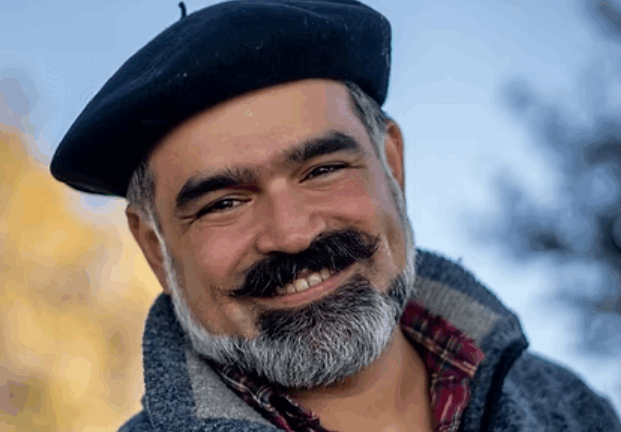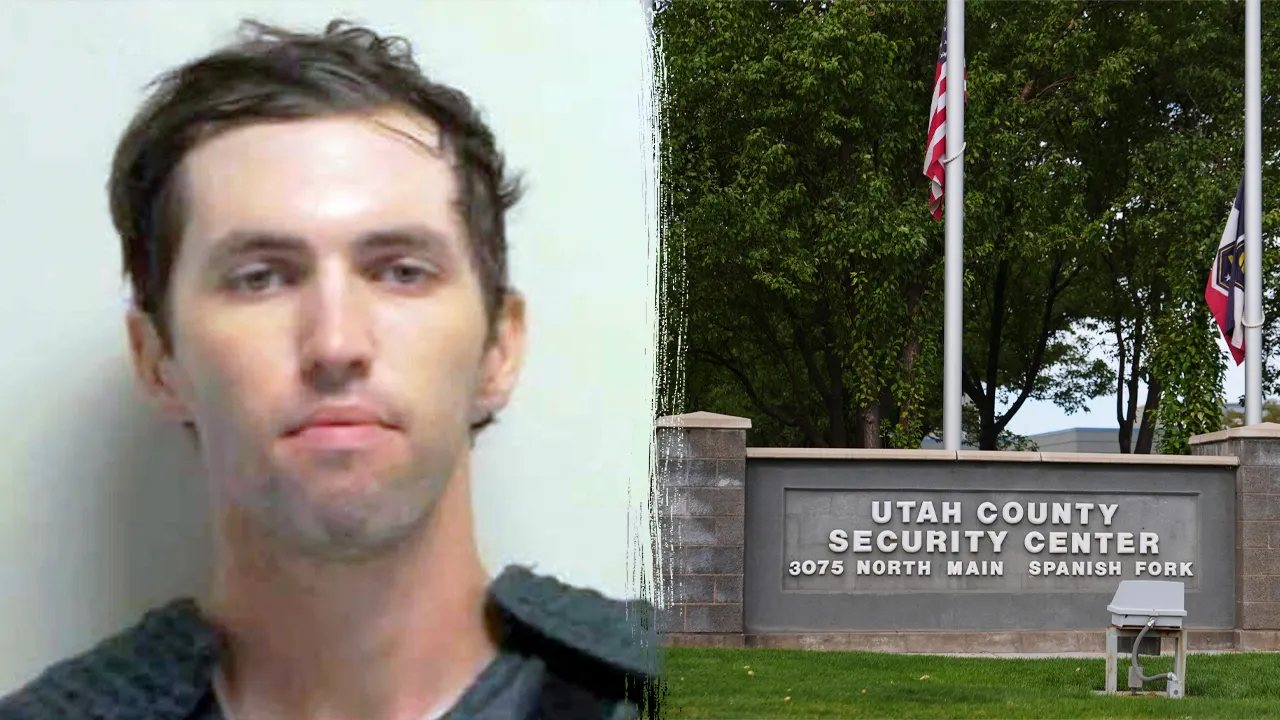
The Massachusetts author and filmmaker talks about Jewish pirates, a High Holidays unicorn, and the challenges facing creators post-Oct. 7.
Arnon Z. Shorr didn’t set out to tell stories about Jewish pirates. In fact, he didn’t set out to tell Jewish stories, period.
“I had been interested in filmmaking since I was 10 years old,” says the 2005 Brandeis University graduate, who moved here from Israel with his parents when he was a toddler and is now a Sharon resident. “I was wondering, how do I break into the industry? How do I get to make that big movie that I really wanted to make?
“And a friend of mine sat me down and he said, listen, you have 12 years of Jewish day school education, you have all this knowledge of Jewishness and Judaism. Why don’t you find some Jewish story to tell?” Shorr recalled. “And I said, absolutely not.”
You could see where Shorr was coming from: The range of Jewish stories in film has always been very limited. “Many of them were either stories about the Holocaust or about Jews being persecuted in some other way,” he says. “Or you had sort of the Woody Allen flavor of things, which was secular New Yorkers with Eastern European ancestry and anxiety issues … none of those types of stories really reflected my own experience as a Jewish person.”
Things changed a few years later, though, when he took a stab at a film challenge that required him to create a Jewish-themed short film in less than a week (basically between Sabbaths). Shorr’s effort, “Widow’s Meal,” wound up winning the competition.
“As I was making the film I realized, I’m not doing any of the things that I associate with Jewish films,” he says. “It’s not a Holocaust story. There’s no antisemitism. This little old lady does not have anxiety issues. She lights Shabbat candles, she does a religious act. So she’s not secular.
“And that kind of flipped a little bit of a switch where I realized, wait a minute, there’s so many more stories that we could be telling. Why is nobody telling them?”
Since then, Shorr has done his part to expand that palette of stories — in both film and later in comics and graphic novels — penning tales of mythical creatures (a High Holidays unicorn tale will be out soon), monsters, and perhaps most successfully, pirates, all with more than a nod toward Jewish history and culture.
Shorr talked to Boston.com last week about the joys of telling those stories — and also the challenges, especially in the wake of the Hamas attack on Israel on Oct. 7, 2023, and the war that followed.
Boston.com: You’ve specialized in Jewish genre stories — pirates and monsters and the like. How did that start?
Arnon Shorr: Well, once I kind of realized I wanted to explore Jewish stories, I tried to do it a little differently. And at one point when we were living out in California, I decided I wanted to start focusing a little bit more on screenwriting. This was when my son was very young, and screenwriting was something I could do between bottle feedings and during nap times. And I wrote a dystopian sci-fi adventure screenplay that was essentially a transposed Exodus story. And I thought it was really fun to take this biblical narrative and put it in this Mad Max kind of universe. I pitched it in Hollywood as Mad Max meets Moses.
I’d see that.
Right? And actually, I got it into the hands of a producer who got it into the hands of a big company. And this company was excited. They were talking about maybe filming in Morocco, but they had exactly one note for me. Now, this was a story about a bunch of Jews who are fleeing persecution and fighting to hold on to their religious and cultural identity in the process. And their one note for me was, this is great, but can you make this not Jewish?
I had a feeling that was coming.
Yeah. You know, I was a little bit befuddled. It’s like, if it’s a good story, what’s the problem with it being Jewish? And they were like, well, you know, they gave the stock answer, which was common in Hollywood at the time, which I think is still common in Hollywood, which is, there aren’t enough Jews to see Jewish movies. And it’s true, we’re a teeny, tiny fraction of the population. But, you know, they weren’t worried about “Moana” being too Maori, or, I don’t know, “The Godfather” being too Catholic. And people who are fans of those films, by and large, are not those identities. So a good story can transcend. For some reason, Hollywood has a hard time admitting that Jewish stories can do the same. And so I really wanted to find a way to prove Hollywood wrong.
And at around that time, a friend of mine gave me a book about Jewish pirates. It’s probably still kind of the only book about Jewish pirates. It has a lousy title, but it’s very interesting. It’s called “Jewish Pirates of the Caribbean.” And it’s a fascinating exploration of this phenomenon of Jews who fled Spain and Portugal in the wake of the Spanish Inquisition, who, although most Jews fled by land or they fled to North Africa, these Jews fled to the sea. Some of them were cartographers, some of them were navigators or translators. They had some experience with the sea.
And some of these Jews who took the high seas, they took to piracy as a means of survival. And at the time, the Spanish navy was the largest navy in the world, largely financed with wealth that they plundered from Jews that they kicked out. And so these pirates were generally plundering Spanish ships. And I thought, this is the most astonishing pirate story I’ve ever encountered.
And it was maddening to me that we’ve had so many pirate movies and pirate TV shows and pirate books, but we’ve never had a Jewish pirate in any of them. So I decided that I wanted to find a way to put a Jewish pirate on screen. And I thought, this is too compelling. It’s got to transcend that perceived barrier that Hollywood imagines around Jewish stories. It’s got to reach a broader audience. And that was the goal that I set out with when I made “The Pirate Captain Toledano” back in 2016.
I watched the short film over this past week, and I was definitely left wanting more. It really sets up the story beautifully.
You are not alone! The film ended up doing really well. It traveled to 50 film festivals all over the world, including in places that have no Jews, like Totovo, Macedonia, or Jaipur, India, or, I don’t remember what city it was in Morocco. So I felt like I was able to say, hey, look, no Jews there. But they still wanted to see this movie, and they still liked it. The first question at every single Q&A was exactly what you said. [“What happens next?”] And that’s how I tumbled face first into comics — even though the film did well, Hollywood was still jittery about Jewish stories. So I started looking at other ways of storytelling. And I had a bunch of friends at the time who worked in comics.
So I reached out to them and said, hey, I heard that graphic novels are kind of a thing right now. How does this whole thing work? And one of these friends, several of them, gave me all sorts of great answers, but one of them actually wanted to work with me. And I’d reached out to him because he had posted an illustration that he had done on Facebook. And that was the first indication that I had that he actually illustrated comics.
This is a great New England connection — his name is Josh Edelglass. He lives here in Massachusetts, and he is now the camp director at Camp Ramah in Palmer, a big Jewish summer camp. And I knew him because years and years ago, I think just after I graduated from Brandeis, he hired me to come in for a week and teach a film intensive. And every few years he’d bring me back in to do the same thing. So I just knew him as the camp guy. And when he posted this illustration he had done for a Jewish comics anthology, I saw it and I said, oh, wow, I should reach out to him. He really loved the pirate story.
One thing led to another over the course of several years. We got a book agent who pitched it to publishers. We got a publisher, and we ended up releasing “Jose and the Pirate Captain Toledano” through Carbon Publishing in May of 2022. That was my first foray into the world of comics.
Without getting too deep into the politics of it all, can you talk about the challenges that a Jewish creator faces in a post-Oct. 7 landscape?
Well, it’s been complicated to say the least, as I mentioned earlier, like the stuff about Hollywood being skittish around Jewish stories, that was true long before Oct. 7, but Oct. 7 kind of made things even more fraught. There is a discomfort with tackling certain Jewish stories unless you have a big star who’s driving it. Like, Adam Sandler has his big deal at Netflix, so he could release “You’re So Not Invited to My Bat Mitzvah” because he kind of has carte blanche to do that. But the studios, production companies, are very, very wary of Jewish stories. And it’s partially because of this conflation of Jewish and Israeli, which makes things very muddled. And, you know, that conflation wouldn’t be an issue if Israel were presented or understood or interpreted differently.
So for me, it’s meant that agents have not wanted to take some of my books out to try to pitch them because they had run into too many roadblocks pitching Jewish content. Publishers who do want Jewish content, they get pushback and they get very nervous about the business they might lose if the activist class gets wind of the fact that they’re publishing a Jewish story … I do have a few stories about Israel as well. I mean, I was born there, my father was born there, my grandfather was born there. You know, I have a lot of connection and history there. Those stories are very, very hard to move.
And there’s also this sort of general sense that people who I knew and who I worked with in the industry, whether it’s the film industry or the comics industry, in the wake of Oct. 7, took a very hard line politically. That felt very hostile and that felt very accusatory and that felt, you know, almost gleeful at what Oct. 7 was and how it played out in ways that were too big and too broad and too painful for me to respond to. And I talked to a lot of Jewish creatives about this experience. And some people tried to respond, tried to have conversations with their friends, tried to say, whoa, whoa, wait a minute. But it was a tidal wave of casual and, you know, very socially acceptable [long pause] unbalanced attitudes.
I’m trying to make this very non-political. I’m trying to be very diplomatic here. But really, I mean, I’ll just say it outright. It was shocking when I was, you know, in tears for several days because of the horror of Oct. 7. Remember, I have family in Israel, my sister lives in Israel. I have a lot of extended family and friends out there I knew, and I could feel very palpably the pain of that experience. And to have friends who know me and who know that I’m Jewish and who know that I’m Israeli post very casually about how you can’t blame the Palestinians for Oct. 7, how somehow it was justified, you know, the whole by-all-means-necessary thing.
And I’m sitting there and I’m trying to figure out — without getting into the broader geopolitics and the history that led into it, which is a history that I’m very familiar with, that a lot of these people are not familiar with — it was just really hard to see that kind of casual vitriol that says that people like me, for whatever reason, deserve to die because they are people like me. And so it’s become really tricky to operate within that.
You’re in an MFA program right now that deals with this issue?
There have been some really interesting developments within the Jewish world to try to look at this, to try to address it in some way. And some of these are a little bit more inward looking, whether they’re fellowships or festivals that try to celebrate and amplify Jewish voices among ourselves — let’s find more stories that celebrate what it means to be Jewish. Because so many people now are being clobbered by society for their identity, for their Jewish identity. And then there are also programs that try to find ways to amplify Jewish [voices].
There’s a growing sense that many, many people don’t really know Jews. And even people who know Jews, they don’t necessarily know Jews as Jews because we tend to not project it when we’re out and about. The picture that they have of us is this very narrow thing.
I was fortunate to speak at Comic Con a couple of years ago in San Diego, and I was on a panel about Jewish representation in comics, and I came up with this metaphor. I call it the monster in the closet theory of antisemitism, which is, you know, when you’re a kid and you’re in your bedroom at night and the lights are off and maybe there’s a little night light in the corner, but otherwise it’s dark. Especially the closet. You know, peeking into that closet, it’s this dark void of nothingness. And when we’re kids and we see that nothingness, we know, there must be something there. And our brains kind of suggest to us that the thing that’s there is scary.
And I think that, you know, globally and in the U.S., that’s a little bit how people think of Jews. They know that there was this thing called the Holocaust and it killed a lot of people. And the people who survived have issues. They know that there are Jews in New York who see shrinks and are fairly well off. They know that Jews are doctors and lawyers and maybe entertainment industry people, but that’s like the little nightlight shining in the corner. There isn’t really a sense in the public consciousness of the full diversity of Judaism and Jewishness. There isn’t a sense of how we are all kind of fully formed human beings beyond just that narrow definition.
So a lot of these fellowships and programs are trying to find ways to expand the palette of Jewish representation, not just to get our stories told, but to get a broader range of our stories to be told. Part of that is this MFA program at the Jewish Theological Seminary of America in New York. It is specifically an MFA program that is meant to give us access to our, you know, the remarkable narrative sandbox of our Jewish heritage …
We’re all learning how to do that in the hopes, I think, that in some way our stories will shine a bit more light into that darkness and give people who, by no fault of their own, don’t really know who we are a little bit more of a sense of who we are, so that the stereotypes don’t jump out of the closet at them.
Arnon Shorr is currently working with a small team of creators on a Jewish comics anthology called “Chutzpah!” Find out more on Kickstarter. For more on Shorr’s books, comics, and graphic novels — including the new “Batya’s Unicorn,” due in early October — visit Shorr’s online shop.
For the full conversation with Shorr, including discussion of his collaborative approach to graphic novels, his newest short film, and his family’s deep ties to Massachusetts, listen to the latest episode of “Strip Search: The Comic Strip Podcast” below:



